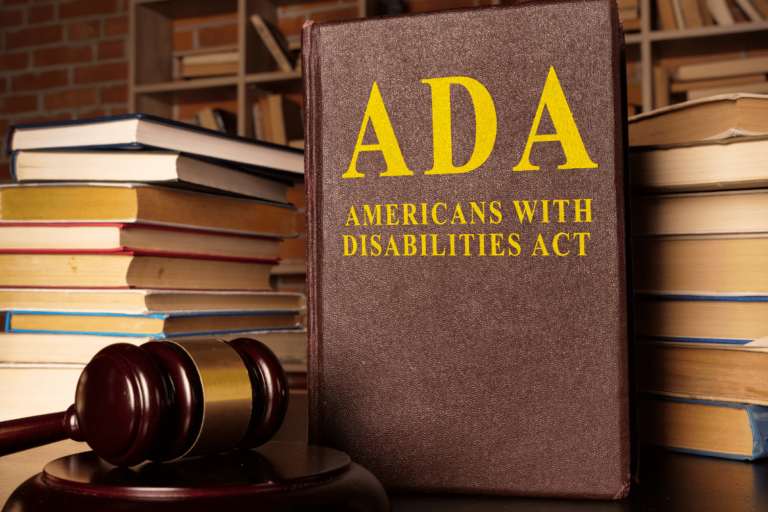Mastering Non-disclosure Agreements for Small Business
Did you know that non-disclosure agreements (NDAs) are vital for small and medium-sized enterprises (SMEs)? They help keep trade secrets safe and ensure competition. In fact, 85% of SMEs see NDAs as key in guarding their secret info.
NDAs, or confidentiality agreements, are special legal contracts. They keep specific information secret between those who sign them. Signing NDAs is crucial during mergers, when making investments, or when hiring new staff. They stop the misuse of important details.
Key Takeaways:
- Non-disclosure agreements (NDAs) are vital for small businesses to keep their secrets safe.
- NDAs keep some info quiet between the involved parties and avoid misuse.
- They are crucial in many business situations like mergers, investments, and new hires.
- Crafting strong NDAs helps small businesses protect their secret details.
- Getting advice from a legal expert is smart when making or signing NDAs.
What is a Non-Disclosure Agreement?
A non-disclosure agreement (NDA) is a promise to keep information secret. It’s a legal deal between two or more parties. This contract is also called a confidentiality agreement or proprietary information agreement. It’s key in many business deals, from mergers to hiring new employees. NDAs help keep secret stuff protected.
Non-disclosure agreements, or NDAs, are very important in business. They keep specific details from becoming known. For example, a new company might share its tech secrets with an investor. NDAs make sure this secret stays safe. They’re vital for keeping confidential information away from competitors.
“An NDA acts as a barrier against the leakage of sensitive business information, ensuring that only authorized individuals have access to the disclosed information.”
NDAs can be used in many business situations. They’re often used when hiring to protect plans, client lists, or product info. This stops employees from sharing secrets. It helps companies stay ahead without their secrets getting out.
They’re also important when talking to potential investors or partners. NDAs make sure details shared in talks are kept private. This lowers the risk of others stealing ideas.
The details and time an NDA covers can change. It depends on what secrets need protecting and who’s involved. Defining these clearly is key. It stops the agreement from being too strict or not enough.
It’s important for each party in an NDA to know their role. The NDA should say what’s secret and how sharing it is okay. Be clear about what information can be shared and why.
Some information might not need to be kept fully secret. This should be outlined in the NDA. It’s for things like when sharing a secret legally is required.
Ultimately, NDAs are vital for protecting business secrets. They offer legal protection. This makes them key for any business wanting to protect their innovative edge.
The Importance of NDAs in Business Operations
Non-disclosure agreements (NDAs) are key for keeping trade secrets safe. They are especially important for small and medium-sized businesses (SMEs). NDAs help these businesses stay ahead in the competitive market.
Thanks to NDAs, SMEs keep important details like customer lists private. They make sure only the right people see strategic plans and unique ways of working. This way, when SMEs talk to investors or work with others, they guard their secrets.
Requiring an NDA puts everyone on the same page legally. This ensures all involved know what is expected of them. It builds trust and allows for safe partnerships without fear of losing control over ideas and plans.
The Role of NDAs in Business Relationships
When SMEs work with partners or investors, NDAs keep info safe. They create a layer of protection for shared secrets. Everyone signs and plays by the same rules. This makes negotiations safer and more secure.
NDAs prevent the unauthorized sharing or use of valuable information, enabling business owners to negotiate more freely and securely.
If a business’s employees know its secrets, NDAs with them are a must. These agreements make sure the team understands how crucial secrecy is. They help build a culture of trust among employees.
Protecting Business Secrets with NDAs
NDAs don’t just keep secrets from rivals. They also stop anyone from trying to steal or use a business’s tricks. By laying out what’s secret clearly, an NDA helps legally protect these secrets.
Good NDAs are powerful tools if someone breaks their promise not to reveal secrets. They help a business get justice, like stopping the other party or getting compensation for the damage. It’s a strong way to say, “This is serious.”
Using NDAs shows a business is serious about secrecy. It tells investors and others, “We take our secrets seriously.” This can boost how others see the business. It might even lead to new chances and collaborations.
Using NDAs is a smart way for small businesses to protect what makes them special. They safeguard important info and keep the business ahead. It’s all about making sure key information is safe and legally protected. Every small business should use NDAs to guard their secret plans and keep the business running smoothly.
Creating Effective Non-Disclosure Agreements
It’s crucial for small businesses to have good non-disclosure agreements (NDAs). Today, many resources, like online legal templates, can help. They guide in making NDAs that are detailed and can be enforced. Small and medium-sized businesses (SMEs) can use these resources wisely to safeguard their private info. It’s key to create NDAs that are clear, lawful, and meet the rules for being enforced.
Using NDA templates when making an NDA can make the job easier. These templates come with important sections already included. What’s more, they are often flexible. This means a business can adjust the agreement to fit its specific situation and needs.
Yet, caution is important when using templates. Always review them carefully. Make sure they fit the exact information and situations you’re dealing with. By making these adjustments, the NDA will serve its purpose better by protecting what’s important to the business.
To make sure NDAs are legally sound, it’s important to keep these tips in mind:
- Clear and Concise Language: Always use clear and direct words. This helps everyone know exactly what’s supposed to stay private and what they can’t do with that info.
- Proper Identification: Be clear about who is signing the agreement. List the names and addresses of all involved parties. This helps avoid confusion later.
- Confidentiality Obligations: Spell out what counts as secret and how it should be kept that way. Also, say when it’s okay to share this info and with whom.
- Non-Compete and Non-Solicitation Clauses: If you need to, add sections preventing the receiving party from competing or stealing employees or clients of the other party.
- Term and Termination: Clearly decide how long the NDA lasts. Also, explain when it can end. This makes sure it’s fair and works how it should for as long as it’s needed.
By using these tips and templates, small businesses can craft strong NDAs. If legal help is needed, don’t hesitate to get it. This helps make sure the NDA is right for the law and your business.
Key Takeaways:
- Creating effective non-disclosure agreements (NDAs) is crucial for small businesses.
- Utilize available NDA templates to save time and effort, but customize them to suit the unique circumstances.
- Follow NDA best practices, such as using clear and concise language, properly identifying the parties involved, and including confidentiality obligations, non-compete and non-solicitation clauses, and clear terms and termination provisions.
Advantages of Implementing NDAs in Your Business Strategy
Using NDAs has many advantages for your business. They make it clear to everyone that keeping secrets is a must. NDAs protect your special info and make sure it’s not shared without reason.
They also make your legal standing stronger if secrets are leaked. For new businesses and smaller ones, having NDAs is key. They help keep your important info safe, giving you an edge.
- Protect sensitive information and trade secrets
- Set clear expectations for maintaining confidentiality
- Enhance legal protection
- Maintain a competitive edge in the market
Protecting Sensitive Information and Trade Secrets
NDAs help keep your secrets safe. They stop secrets, like special marketing plans or customer lists, from getting out. This keeps the things important to your business under wraps.
Setting Clear Expectations for Maintaining Confidentiality
NDAs make it clear how important secrecy is. They’re signed by those working with you, promoting a culture of keeping quiet. This means less chance for secrets to accidentally get out.
Enhancing Legal Protection
With NDAs, your legal protection gets a boost. They clearly show the rules about secret sharing. If secrets do spill, NDAs can help you get compensated.
Maintaining a Competitive Edge in the Market
Startup and small businesses need every edge they can get. NDAs protect their unique ideas and keep competitors from stealing them. This way, they keep their place ahead in the market.
| Advantages of Implementing NDAs |
|---|
| Protect confidential information and trade secrets |
| Set clear expectations for maintaining confidentiality |
| Enhance legal protection |
| Maintain a competitive edge in the market |
Enforceability of NDAs: What You Need to Know
Non-disclosure agreements (NDAs) are key for keeping secrets safe. Making sure they’re enforceable is crucial. This means they have to be drafted well and follow legal rules. One key rule is for both sides to get something in return when they sign.
The rules for enforcing NDAs can change by location, but some things stay the same. For one, the agreement must be fair. Both sides must agree to terms that are just. Also, what’s covered and how long it lasts must be very clear, with no guessing allowed.
Companies, especially small and medium-sized ones, should know these rules. Following them helps keep their secrets safe. If someone breaks the NDA, it gives the company a way to make things right in court.
To show how vital it is to have a good NDA, think about this:
“An enforceable NDA helps keep a company’s secrets safe. It lets them do secret deals without worrying about leaks. The NDA is a shield to protect key info and keep the business ahead of its rivals.”
Table: Key Factors for Enforceable NDAs
| Factors | Considerations |
|---|---|
| Mutual Consideration | The NDA should involve a clear exchange of value between the parties. |
| Fairness and Reasonableness | The terms and conditions of the NDA must be fair and reasonable for both parties. |
| Scope and Duration | The NDA should clearly define the scope and duration of the confidentiality obligations. |
Relevance of Jurisdiction
Each place has its own rules for NDAs. SMEs need to know and follow these. Getting advice from NDA legal experts can be a big help.
By focusing on making NDAs strong, companies keep their secrets safe. This lets them do business in confidence, knowing they’re legally protected.
When Might an NDA be Considered Unenforceable?
Non-disclosure agreements (NDAs) are key for keeping secrets safe between groups. Yet, they can be seen as invalid under certain situations. It is vital for small and medium-sized businesses to watch out for these issues. This way, they can be certain their NDAs will actually work when needed.
Overly Broad Language
An NDA might not hold up if it uses language that’s too wide. This makes it hard to know what’s really supposed to stay secret. If the NDA is not clear, people can end up arguing what’s really meant to be kept quiet.
Attempts to Protect Publicly Available Information
NDAs are there to shield private or secret info. But, if they try to keep info secret that’s already out there, that’s a problem. NDAs should only apply to info that the general public can’t easily find or know about.
Clauses Requiring Concealment of Illegal Activities
NDAs can’t make someone hide things that are against the law. Using them to cover up illegal acts is a big no-no. Any part of an NDA that asks for shady stuff can make the whole thing null and void.
To avoid these traps, it’s smart for companies to make sure their NDAs are clear, just, and within the law. When written carefully, these documents can do a better job of keeping a company’s secrets safe.
Example of an Unenforceable NDAs – Overly Broad Language, Attempts to Protect Publicly Available Information, and Clauses Requiring Concealment of Illegal Activities can render an NDA unenforceable.
Handling NDA Violations: Steps to Take
Breaking a non-disclosure agreement (NDA) is big trouble. If someone breaks an NDA, you can do a lot legally. This includes getting court orders to stop more disclosures or suing for money lost because of the break. The action taken will vary based on the breach and the law in your state. It’s key for small and medium enterprises (SMEs) to know what to do if their NDAs are violated.
“Keeping secrets safe is key to doing well in business. If an NDA is broken, deal with it fast to limit harm.”
Here’s what to do if your NDA is broken:
- First, gather proof of the break. This includes any messages, emails, or documents.
- Next, read your NDA closely. Look at what it says about breaking the agreement.
- Then, get advice from a lawyer who knows about contracts. They will help you understand your options.
- If it’s a small issue, consider sending a letter to stop the other party from talking about your secrets. Demand that they stop and not share any more.
- If the problem is bigger, you might need to talk things out or mediate to avoid going to court. This is especially true if a lot of money is involved.
- As a last resort, you may have to sue. This is for serious violations or if you can’t find a peaceful resolution. It’s about fighting for what’s fair and protecting your interests.
- The remedies you seek in court could be to stop further disclosures (injunctions), financial compensation, or what the law decides is fair.
Every violation is different, and what you do next will depend on the details of your case. Always get proper legal advice to make sure you’re on the right path to solving your issue.
| Steps to Handle NDA Violations | Descriptive |
|---|---|
| 1. Document the breach | Gather evidence to establish the violation by collecting relevant documents. |
| 2. Review the NDA | Carefully examine the NDA terms and conditions related to breaches. |
| 3. Consult an attorney | Seek legal advice from an experienced contract law attorney. |
| 4. Send a cease and desist letter | Formally demand that the breaching party stops disclosing unauthorized information. |
| 5. Consider mediation or negotiation | Attempt to resolve the breach outside of litigation through mediation or negotiation. |
| 6. File a lawsuit, if needed | Initiate a legal proceeding to protect your rights and seek compensation. |
| 7. Pursue remedies | Seek appropriate remedies, such as injunctive relief or financial compensation, through the legal process. |
The Power of Precise Language in NDAs
Why is precise language important in an NDA?
NDA stands for Non-Disclosure Agreement. This type of contract is serious. It’s used to protect confidential information. If the language isn’t clear, it could cause issues in the future.
Precise language reduces misunderstandings. It ensures both parties fully understand their obligations. Clever wording can’t be vague. Precision helps avoid future disagreements or legal battles.
For example, instead of saying “the Company may share the information,” an NDA might say, “The Company is permitted to disclose the information.” This is clearer and avoids confusion.
In conclusion, using precise language in an NDA is crucial. It helps make sure everyone knows exactly what they’re agreeing to. This can prevent trouble down the road.
The Importance of Reading and Writing Effective Agreements
For entrepreneurs and small business owners, understanding agreements is key. Good agreements protect a business’ interests. They make sure everyone follows the rules and communicates clearly. This makes deals go smoothly and helps the business run better. So, knowing how to read and write these agreements is vital for any business leader.
Good agreements are the secret behind many successful businesses. They act as guides, clearly showing what everyone can expect. With them, it’s clear who does what, which stops arguments before they start.
Knowing how to read an agreement is essential for making smart choices and spotting risks. It means understanding all the rules. This way, business owners know they’re playing by the book and keeping their own rules clear.
“Effective agreements are like compasses that guide businesses towards success, providing clarity, certainty, and protection.”
Writing a good agreement is just as important. Explaining what’s needed and who does what clearly can prevent a lot of problems. A great agreement keeps things fair and everyone on the same page.
Using clear words is crucial. It makes sure everyone knows exactly what’s meant. This builds trust and keeps arguments away, making business work smoothly.
Good agreements also make talking things out easier. When everyone knows the deal, discussing it is simpler and quicker. This open, clear way of talking helps everyone find a fair deal fast.
At the end of the day, being good at agreements lets business owners look after their interests and keep their friends close. Strong, clear agreements mean fewer fights, better deals, and more wins. They are the foundation for sailing through the ups and downs of running a business well.
| Benefits of Effective Agreements | How They Impact Businesses |
|---|---|
| 1. Clear expectations | – Prevent misunderstandings – Foster trust and reliability |
| 2. Legal protection | – Ensure compliance with laws and regulations – Mitigate risks |
| 3. Efficient negotiations | – Streamline communication and decision-making – Facilitate timely agreements |
| 4. Strong business relationships | – Cultivate trust and transparency – Enhance cooperation and collaboration |
| 5. Operational efficiency | – Reduce disputes and conflicts – Increase productivity |
Practical Tips for Reading and Writing Effective Agreements
For entrepreneurs and small business owners, understanding agreements is vital. Whether it’s an NDA, a client contract, or a partnership deal, solid agreements protect your business. They also help you build strong partnerships. Here are some tips to guide you through this crucial process:
Familiarize Yourself with Legal Terminology
Knowing legal terms is a must for agreement work. Learn the common terms in your industry. This makes understanding and writing agreements clearer and more accurate.
Be Clear and Concise
Effective agreement writing requires clear and simple language. Avoid complex words and phrases. This clarity helps prevent misunderstandings.
Define Roles and Responsibilities
It’s crucial to outline each party’s roles and duties. This clarity prevents future confusions or disagreements. Be specific about what each party needs to do.
Address Potential Risks
Think about the problems that might pop up and plan for them. Setting rules for handling issues can keep your business running smoothly. By being prepared, you can avoid major disruptions.
Include Termination Clauses
Termination clauses define how the agreement can end. It’s key to clearly state when and how either party can get out. This protects your business and offers an exit if things go wrong.
Seek Legal Advice
For complex agreements or new legal areas, a lawyer can help. They ensure your agreements follow the law. This protects your business and minimizes legal risks.
Stay Informed about Relevant Laws and Regulations
Stay up to date on laws that affect your business. This helps make sure your agreements are legal. Keep looking into laws and rules that apply to your industry.
Practice Active Listening and Empathy during Negotiations
Negotiating well involves listening and understanding others. Actively listening and showing empathy can help you achieve better agreements. It builds positive working relationships.
Be Prepared to Compromise
Being ready to make trade-offs is often necessary in agreement writing. Both sides might not get everything they want. Look for ways to find common ground without hurting your business.
Maintain Well-Organized Records of Agreements
Keep clear records of all agreements. This includes the first drafts, final copies, and any changes. Having good records can settle disputes and shows you’re organized.
These tips can improve how you handle agreements. Remember, agreements are legal and binding. So, take your time and make sure they truly protect your business and its rights.
Conclusion
Learning how to create good non-disclosure agreements (NDAs) is key for small companies. These NDAs are very important for keeping secret info safe and stopping others from using it wrong. They help keep a business ahead of the competition.
It’s crucial to know why NDAs matter and how to make them right. It’s also vital to understand what to do if someone breaks the agreement. This way, small businesses can keep their secrets safe and deal with business issues better. Talking to a lawyer about NDAs is a smart move.
FAQ
Q: What is a Non-Disclosure Agreement?
A: An NDA is a contract that keeps certain info secret between people or companies. It’s also known as a confidentiality agreement. It helps protect private or sensitive details.
Q: Why are NDAs important in business operations?
A: NDAs are key in many business situations, like deals and hiring new staff. They guard important information and help businesses stay ahead of the competition.
Q: How can I create an effective non-disclosure agreement?
A: For small companies, making good NDAs is key. You can use legal templates online. It’s important to follow the right steps to keep your secrets safe.
Q: What are the advantages of implementing NDAs in my business strategy?
A: Putting NDAs in place makes everyone understand the rules. They keep secrets safe and provide legal help if secrets get out.
Q: How can I ensure the enforceability of NDAs?
A: To make sure an NDA is legal, write it carefully, following laws. Both sides should get something out of it. Before you start using them, check with a lawyer.
Q: What might render an NDA unenforceable?
A: Sometimes, NDAs don’t hold up in court. This could happen if they’re too broad, try to hide public information, or cover up illegal things.
Q: How should I handle NDA violations?
A: If someone breaks an NDA, you might need to go to court. You can ask for money or try to stop them from sharing more secrets. What you do depends on the law and the situation.
Q: What is the importance of precise language in NDAs?
A: The right words in an NDA are critical. They make the NDA clear and legally sound. Precision protects your business’s secrets the best.
Q: Why is reading and writing effective agreements important?
A: Good agreements keep your business safe and running smoothly. They make sure everyone knows what to do and help avoid problems or misunderstandings.
Q: What are some practical tips for reading and writing effective agreements?
A: Start by learning key legal terms and being simple and clear. Make sure each person’s job is spelled out and talk about risks. It’s smart to get help from a lawyer and keep up with laws. When making deals, listen and be willing to give a little. Always keep good records of what’s agreed upon.
Q: Why is mastering non-disclosure agreements important for small businesses?
A: Knowing how to use NDAs well is vital for a small business. They protect your important secrets, helping your business to stand out and succeed.
Source Links
- https://www.discrepancyai.com/blog/ultimate-guide-to-non-disclosure-agreements-for-small-and-medium-sized-businesses
- https://www.linkedin.com/pulse/mastering-art-agreements-crucial-skill-entrepreneurs-christine
- https://contractnerds.com/stick-to-the-core-8-essential-provisions-of-non-disclosure-agreements/







